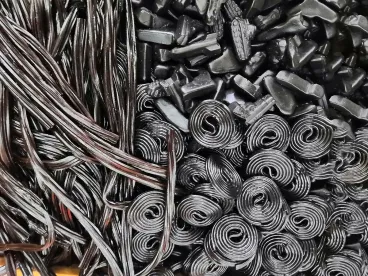-
Under FDA’s regulations, at 21 CFR 184.1408, black licorice is generally recognized as safe (GRAS) for flavoring uses at specified maximum levels of glycyrrhizin content in food such as candy. In time for Halloween of 2017, however, FDA issued a consumer report on Black Licorice: Trick or Treat?, warning that glycyrrhizin can cause potassium levels in the body to fall and may lead to abnormal heart rhythms, high blood pressure, edema, lethargy, and congestive heart failure for some people eating large amounts, for example, 2 ounces of black licorice a day for at least two weeks. Subsequently, as we reported in 2020, a 54-year-old Massachusetts man died of cardiac arrest after reportedly consuming a bag and a half of black licorice each day for several weeks.
-
In a July 11, 2022 opinion, a Pennsylvania district court denied a motion by The Hershey Company (Hershey) to dismiss injured plaintiffs’ strict products liability and negligence claims for failure to warn consumers of Hershey’s black licorice candies about glycyrrhizin’s health risks. Regarding Hershey’s argument that the plaintiffs’ claims are preempted by the Nutrition Labeling and Education Act of 1990 (NLEA), the court found that to the extent a need for a safety warning is established, it would fall squarely within the language of the NLEA’s safety exception as a “requirement respecting a statement in the labeling of food,” which “provides for a warning concerning the safety of the food or component of the food.” Thus, Hershey did not overcome a presumption against preemption that applies in areas such as food and beverage labeling that have been traditionally within the province of state regulation and the lawsuit will continue.
-
Other courts have likewise recognized the “health warning exception” to preemption by the NLEA as applicable to GRAS food ingredients that may be unsafe for certain individuals or at certain levels of consumption. For example, New York City’s warning requirement for restaurant menu items containing more than 2,300 mg of sodium was upheld although salt (sodium chloride) continues to be GRAS.
A Safety Warning May Be Required for Black Licorice Used in Compliance with a GRAS Regulation
Monday, October 31, 2022
Current Public Notices
Published: 3 September, 2025
Published: 28 August, 2025
Published: 25 August, 2025
Published: 25 August, 2025
Published: 25 August, 2025
Published: 25 August, 2025
Published: 22 August, 2025
Published: 20 August, 2025
Published: 20 August, 2025
Published: 18 August, 2025
Published: 18 August, 2025
Published: 14 August, 2025
Published: 11 August, 2025
Published: 8 August, 2025
Published: 26 June, 2025



 />i
/>i

